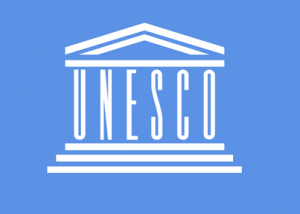Ghana urged to implement the 1972 World Heritage Convention
 Mr Pascall Taruvinga, the Chief Heritage Officer of UNESCO, has called on government to domesticate the implementation of the 1972 World Heritage Convention in accordance with the legal review policy.
Mr Pascall Taruvinga, the Chief Heritage Officer of UNESCO, has called on government to domesticate the implementation of the 1972 World Heritage Convention in accordance with the legal review policy.
He said this had become relevant as an assessment made in May 2019 on some of Ghana’s forts and castles indicated that the monuments were in unpleasant conditions and did not conform to the convention’s dictates.
The 1972 World Heritage Convention seeks to identify, protect, and preserve cultural and natural heritage considered to be of outstanding universal value.
Mr Taruvinga made the call at the opening of a three-day workshop in Accra to enhance the capacity of Ghana and raise awareness on the implementation of the 1972 World Heritage Convention.
The workshop, organised by UNESCO would provide more knowledge and tools for Ghana, site managers and all concerned with the relevant information and understanding to implement the 1972 Convention.
He noted that the cultural and natural heritage were threatened with destruction not only by the traditional causes of decay, but also by changing social and economic conditions.
Mr Taruvinga said the lack of capacity in terms of human and financial resources were some of the main challenges they discovered confronted the natural reserves and urged that government up the game for implementation.
He said government needed to ensure that tourism projects of the forts were withheld until all UNESCO compliance were adhered to and a proper plan enacted for the management and development of the sites.
He called for more stakeholder consultations and involvement to sensitise the people on how to effectively implement the 1972 World Heritage Convention.
“If Ghana does not take action now, the state party may be de-listed from the World Heritage list,” he stated.
Mr Abdourahamane Diallo, UNESCO Representative, said the workshop was important as Ghana had two Forts and Castles sites on the World Heritage list as well as the Volta, Greater Accra, Central and Western Regions, and the Asante Traditional Buildings.
He added that the Kakum National Park, Assin Attadanso Reserve, Mole National Park, Navrongo Catholic Cathedral, Nzulezu Stilt Settlement, Tenzug – Tallensi Settlements and the trade Pilgrimage Routes of North –Western Ghana were captured on the Tentative List.
Mr Diallo said the relationship between tourism and culture provided a unique opportunity to contribute to inclusive economic growth with the over one million people travelling around the world in 2012.
“This culture and heritage needed to be protected, preserved and promoted for sustainable development,” he said.
He said UNESCO included; the approval of International Assistance for the development of a management plan, to renovate the Museum of Slavery at the Ussher Fort with funding from the government of Netherlands.
This, the UNESCO Representative said, would ensure the facilitation of an Advisory Mission to support Ghana in the protection of the various components of the elements listed on the World Heritage List.
Mr Diallo said Africa was under represented on the inscriptions even though Ghana and Burkina Faso had 29 and one new property inscribed respectively; it had less than 10 per cent of the overall global total of 1,121 listings.
Mrs Barbara Oteng Gyasi, the Minister of Tourism, Arts and Culture, expressed gratitude to UNESCO for the workshop, adding that Ghana as a state party had derived much benefit from ratifying the convention and therefore was committed to its implementation.
Government recognises the importance of the heritage sites, especially when they are celebrating the year of return, she said.
For this reason, parliament decided that there should be a heritage and cultural fund, which would be used for the conservation and management of the country’s heritage and culture.
The Minister said government initiated action processes and currently parliament had drafted a bill which would be ready by the end of 2019 to give the fund a legal backing.
Source: GNA
